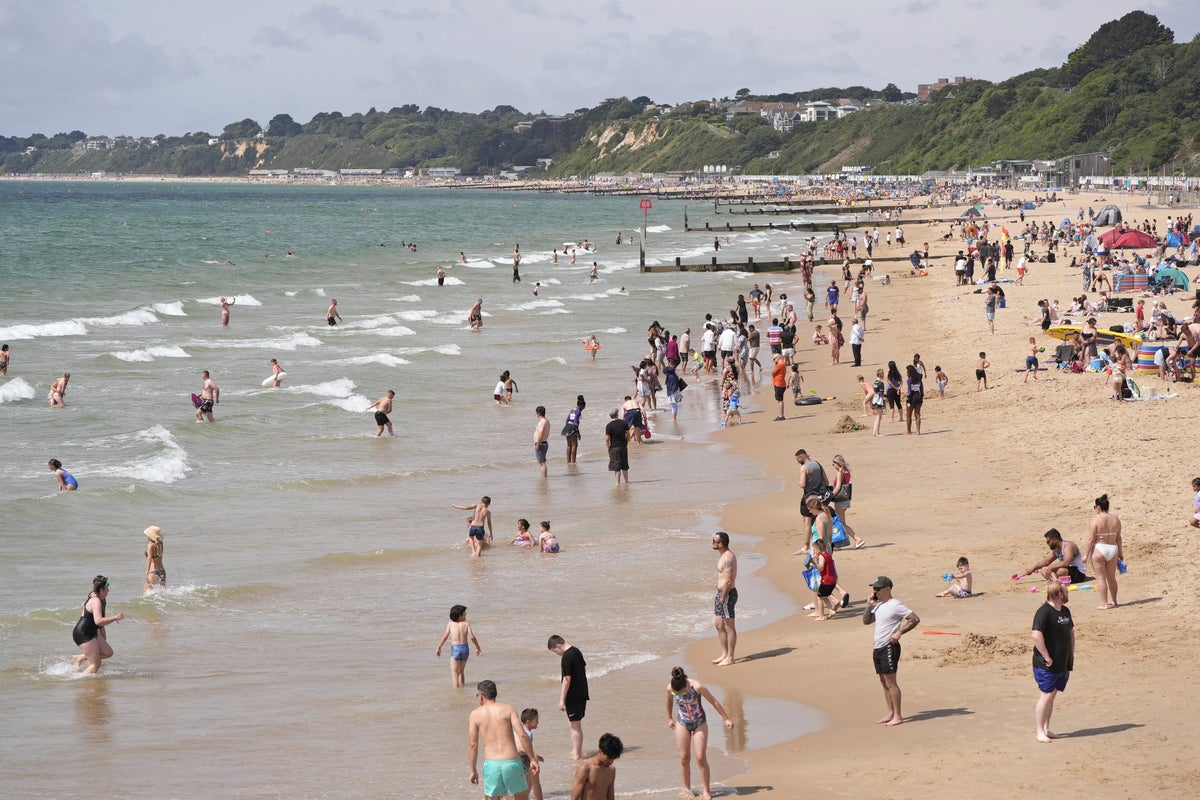Nearly 600 deaths are expected across England and Wales due to the current heatwave, scientists have warned.
Researchers from the London School of Hygiene and Tropical Medicine and Imperial College London estimate around 570 excess deaths between Thursday and Sunday, based on historic mortality data.
The new research follows a World Weather Attribution (WWA) research group study which found the heatwave has been made about 100 times more likely and 2-4C hotter due to climate change.
Temperatures could reach 30C on Saturday, following highs of 29C in Coningsby, Lincolnshire, on Friday, according to the Met Office.
It comes as a second amber heat health alert in two weeks came into force on Friday.
The alert, which covers London, the East Midlands, South East, South West and East of England, will last until 6pm on Tuesday.
Here, The Independent looks at how you can keep yourself safe during a heatwave:
The government advises staying hydrated during hot weather by drinking fluids regularly throughout the day, particularly if you are active.
Water, diluted squash and lower-fat milks are recommended. While fruit juice, smoothies and soft drinks can seem refreshing, they often contain high levels of sugar, which may contribute to dehydration.
It鈥檚 best to limit how much of these you consume and opt for diet, sugar-free or no-added-sugar alternatives instead.
If you鈥檙e heading out, take a refillable bottle of water with you, and carry extra if travelling by car or public transport.
Alcohol can dehydrate the body, so choosing alcohol-free drinks or alternating alcoholic drinks with water is advised.
The sun in the UK is strong enough to cause sunburn, with children especially vulnerable to skin damage.
To reduce your risk, follow these sun safety measures:
Homes can become uncomfortably warm during hot weather, especially at night when trying to sleep.
To keep indoor temperatures down, consider the following steps:
Public spaces such as places of worship, libraries or supermarkets may be cooler than your home. If they are nearby, visiting one can offer a helpful break from the heat.
Heat exhaustion happens when the body gets too hot and struggles to cool down. It鈥檚 not usually serious if you cool down within 30 minutes, but if untreated, it can develop into heatstroke, according to the NHS.
Signs of heat exhaustion include:
Heatstroke is more serious and occurs when the body鈥檚 temperature rises to dangerous levels and can no longer cool itself.
Symptoms include:
Heatstroke is a medical emergency. Call 999 immediately and try to cool the person down while waiting for help.
While anyone can feel unwell in the heat, some people are more vulnerable. These include
